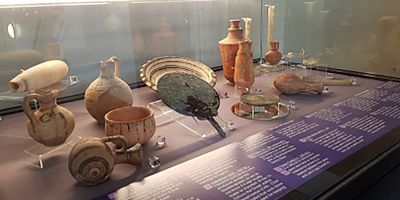4th CTS Professionalisation Talk 2017-18: Transcreation
Chris Hoyle gives a background on “Mother Tongue Writers”, and discusses the concept of transcreation and the complex process behind it.
During this CTS Professionalisation Talk, students had the pleasure to meet Chris Hoyle, a former MAATS student at the University of Leeds and now Junior Account Manager at Mother Tongue Writers in London. Prior to his masters, Chris studied French and German Language with Linguistics at York, but it wasn’t until he attended Leeds University in 2015 that he found his passion: transcreation. Throughout the talk, Chris gives some background information on Mother Tongue Writers, as well as some insight into transcreation and the complex process behind it. He then goes on to explain the day to day duties of an account manager, from first contact with the client to delivery of the final product.
Mother Tongue Writers was founded over twenty years ago by advertisement executives who found a gap in the market for a specialised translation service combining both marketing and languages. The company, with hubs in London, Singapore and Los Angeles provide around the clock support to their clients, as well as priding themselves on being a member of the internationally recognised group Omnicom comprising the world’s creative best. The London team is made up of in-house multilingual account managers and freelance translators that are also market-based copywriters, who possess not only the creative writing skills, but those that produce a quality translation. Working together, they provide services including voice over work, typesetting, in-market research and copywriting to leading companies worldwide such as Amazon, Google, Pampers, HP and Kellogg’s. However, the company’s main focus is transcreation.
What does transcreation involve?
Transcreation is a mix of translation and creation. When you ‘transcreate’ you adapt communication from one language into another, maintaining the same style, message, and emotional impact as in the original, whilst also achieving cultural appropriateness. Essentially, it is producing the same effect in the target culture as in the source culture. Chris used the famous slogan “I’m lovin’ it” to explain this freer form of translation. This slogan by McDonald’s was transcreated into Chinese as “我就喜欢”, the back translation of which is “I just like it”. “Love” is a very strong word to express emotion in China and is not commonly used for describing food, therefore the copywriters opted for using the word “like” which produces the same effect in Chinese culture as the original does in the English-speaking world.
What role does the project manager play in this?
Account managers like Chris ensure the smooth process of transcreation. Chris highlights the importance of gathering all information during first contact with the client: what brand is this for? Who is the target audience? Are there any visuals? A good interactive example he used to illustrate the importance of this was on transcreating the slogan “keep rolling”. This could insinuate a number of things, from tyres to cigarettes, and without the meaning behind it the copywriters would not be able to produce an accurate effect in the target culture. Once the copywriters have produced the transcreation, it is then sent to a third-party specialist and internally quality checked. This involves two different checklists of requirements, one covering the transcreation itself, from its cultural relevance and compliance with local legislation, to the other overseeing quality control, its accuracy and consistency. The client is sent different possible transcreations that could be used, along with a back translation for each one and an explanation of why this would work in the target market.
For more information about Chris Hoyle and Mother Tongue Writers please see the following links:
Linkedin: Chris Hoyle
Linkedin: Mother Tongue Writers
Website: http://www.mothertongue.com/gb/services
Twitter: @MotherTongue_UK
Facebook page: @mothertonguewriters
By Emma McNaught, Giorgia Calore, Tianyu Zhang, Yi-Hsin Liu



